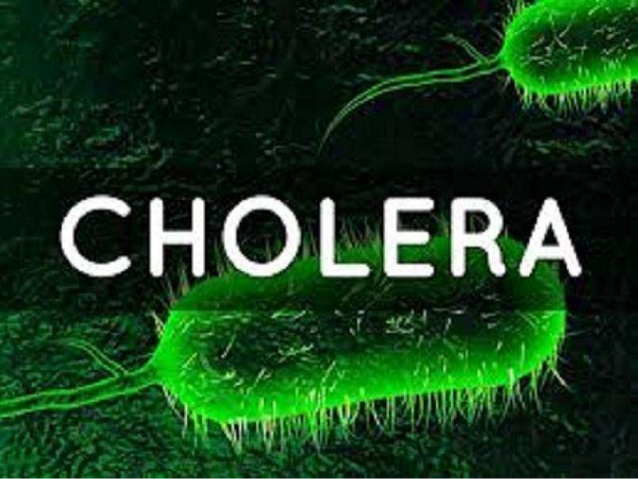Pluviophile. That is the word. A person who finds joy and peace of mind during rainy days. Someone whose mood is automatically lifted upon sighting a pregnant cloud. A cloud filled with the promise of light or heavy rain showers, which will dim the harsh Nigerian sun and make the weather favourable for all. I have always loved the rainy season and so do not mind getting drenched when caught in a heavy shower.
Growing up in Ikoyi, Lagos, you get used to the incessant rainfall. I remember in primary school how we would wear our raincoats over our uniforms and rainboots instead of school shoes. Despite being driven to school, my sister and I still had to wade through water, which reached up to our knees before we entered our respective classes. On some days, the water would seep into our classrooms and reach up to our tiny ankles. We would then splash and play and pay little heed to our lessons. As a child, I was just happy to be able to splash about in the rain not realizing that it was due to faulty drainage systems that allowed water to collect in our classrooms. I had no way of knowing that some kids would develop athlete’s foot (a fungal infection) due to the constant moisture between their toes. Others would develop schistosomiasis (bilharzia), various skin diseases and so on. This was in the late 1980s.
- MDCN inducts 879 foreign trained medical graduates, warns against strike
- PODCAST: Cholera: “States Have Been Left To Their Own Devices”
It is now 2021 and we are again faced with the same dilemma. My love for rain has somewhat dimmed by the realization that with rain comes yet another outbreak of the deadly cholera infection. Whenever I am driving and the craving to wind down my car window in order to smell the raindrops overtakes me, I am jolted back to reality. Instead of the beautiful smell of rain in some areas, I am greeted by the foul-smelling stench of faeces dug up by rainfall. According to the World Health Organisation (WHO), Nigeria has the highest burden of the waterborne disease in Africa. And the most dangerous of all water related diseases is Cholera. It is a life-threatening diarrhoeal disease that can cause death within 24-48 hours if not properly treated.
It is appalling that for more than four decades, a preventable disease like cholera is still a recurring epidemic in Nigeria and has led to the death of thousands of people, especially children. NCDC’s report on Cholera indicates that 27.6 per cent of victims across the states are those in the five years to 14 years bracket. Since the beginning of the latest outbreak in 2021, no less than 816 deaths have been recorded in 18 out of the 36 states in Nigeria.
Almost everyone knows that cholera is caused by consuming water contaminated by the bacteria vibrio cholerae. The bacteria are excreted in stools of people infected with the disease. Therefore, in layman language, cholera occurs when drinking water is contaminated by shit containing the bacteria. How does this happen, you ask? The answer is open defecation and poor drainage systems in the country. That in 2021, Nigeria is still battling with the menace of open defecation is something to be ashamed of. Each year, rain falls and washes off faeces and carries it into the rivers, streams, ponds, etc. This water is in turn fetched for drinking by people living mostly in rural areas. Another method of contamination is when pit latrines are dug within a close vicinity of wells that provide drinking water.
The danger in cholera is how fast the infection spreads. It only takes one person to travel to a so-called urban area and within days, there is an outbreak. The lack of the practice of handwashing before eating and after using the toilet as well as the consumption of leftovers without heating are unhealthy practices associated with many cholera outbreaks. Moreover, some African foods such as millet gruel and peanut sauce might be adequate for the growth of Vibrio cholerae. Also, the consumption of contaminated aquatic foods such as fish might pose a risk of infection.
In previous cholera outbreaks in Nigeria, including the 2018 outbreak, targeted inventions such as safe water provision, were implemented just after the outbreak. However, researchers have observed from earlier outbreaks that once disease data demonstrated a downward trend, provision of safe water sources dwindled, leading to future outbreak occurrences. Just like every good policy in Nigeria, it starts off well and then ultimately diminishes. The current cholera outbreak appears to fall in line with this observation.
The response to this current outbreak has been largely based on patient education and case reports. The NCDC reports that it is coordinating response activities between the Federal Ministry of Water Resources, National Primary Healthcare Development Agency, and local partners. It has also deployed rapid response teams to six states experiencing high levels of community spread: Benue, Kano, Kaduna, Zamfara, Bauchi, and Plateau. The centre also stated its support of ongoing nationwide surveillance through the routine Integrated Disease Surveillance and Response as well as Event Based Surveillance. Surveillance activities include laboratory surveillance with samples from more than ten states at the National Reference Laboratory. The NCDC has also reported plans to train State Laboratory Scientists to perform sample collection and analysis.
In high-risk communities, international partners such as UNICEF and the International Organization for Migration as well as community health volunteers are reported to be engaging with individuals to promote good hygiene practices, provide safe water, and educate on the dangers of open defecation. Public health messages about water sanitation, good hygiene, and cholera are being aired in English and local languages to build social mobilization, distribute information, and initiate in-person awareness campaigns within smaller communities.
However, all these are temporary measures which have been repeated over and over again. The short-term goal is to prevent future outbreaks while the long-term goal is to eradicate cholera completely with the use of vaccines. Outbreaks can be prevented by the provision of potable water by the government, building of public toilets and good drainage systems. The World Health Organization (WHO) in collaboration with health authorities has deployed Oral Cholera Vaccine (OCV) in combination with other community control measures to stop the transmission of the disease and save lives in various states. A total of 710,212 persons one year and above have been vaccinated with the OCV in the five-day reactive campaign that ended on 28 July 2021 in the first cycle.
Goal Six of the United Nations Sustainable Development Goals (SDGs) is on ensuring water and sanitation for all by 2030. This means that nine years from now, every person in Nigeria and other countries in the world should have access to safe drinking water and safe sanitation. Indeed, the UNICEF and the Federal Ministry of Water Resources not long ago signed a document called Partnership for Expanded Water, Sanitation and Hygiene (PEWASH), which aims at meeting the SDGs agenda on schedule. But having a plan is one thing, bringing in the resources and mustering the commitment towards its fulfilment is something else.
Until then, we should all bury our head in shame.

 Join Daily Trust WhatsApp Community For Quick Access To News and Happenings Around You.
Join Daily Trust WhatsApp Community For Quick Access To News and Happenings Around You.


